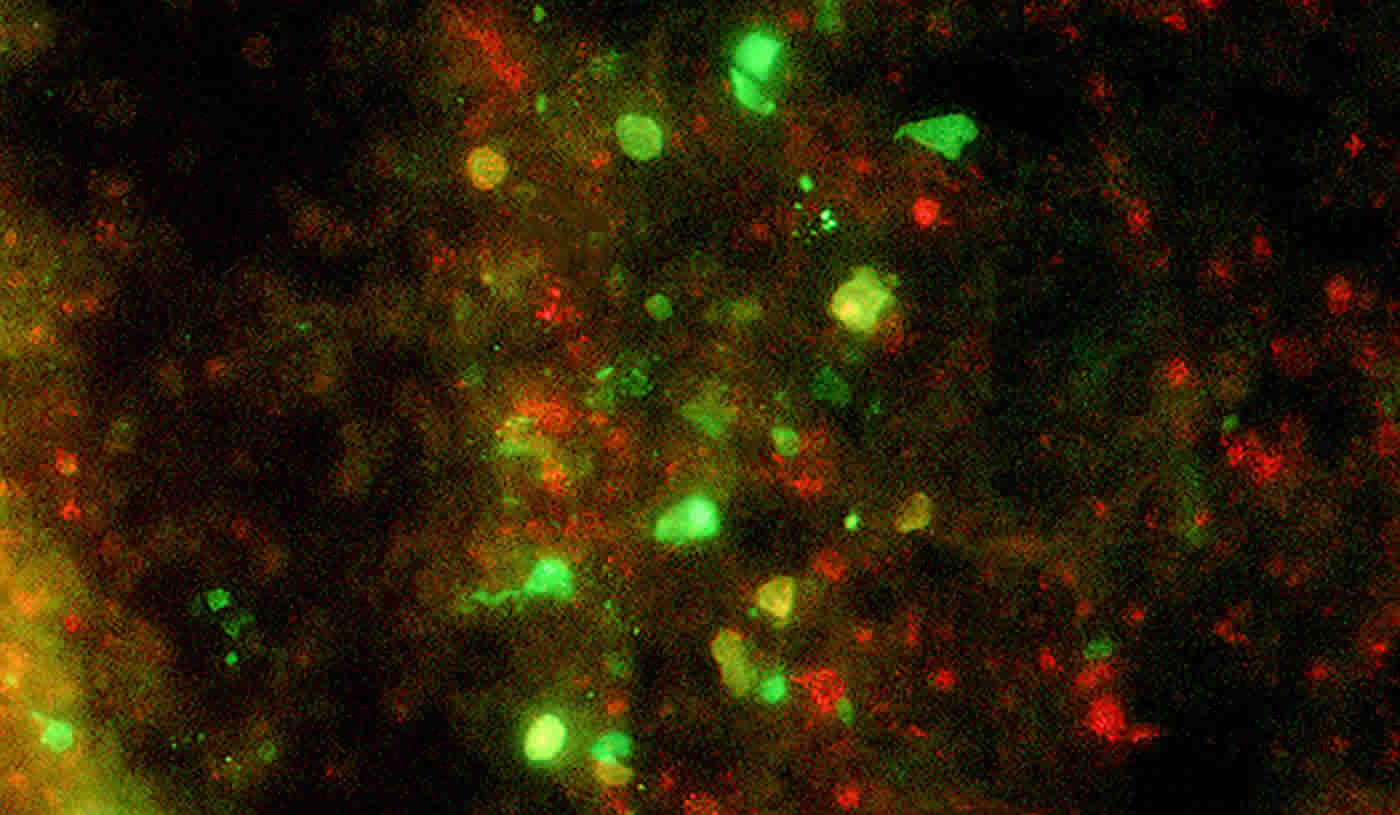Brain tumors are notoriously difficult for most drugs to reach, but Yale researchers have found a promising but unlikely new ally against brain cancers — portions of a deadly virus similar to Ebola.
A virus containing proteins found in the Lassa virus — like Ebola, a hemorrhagic fever virus found in some parts of Africa — not only passed through the formidable blood-brain barrier but destroyed brain tumors in mice, according to research released April 16 in the Journal of Virology.
“The chimeric virus turned out to be completely safe in animals and tended to specifically target cancer cells in the brain,” said Tony van den Pol, professor of neurosurgery at the Yale School of Medicine, researcher at the Yale Cancer Center and senior author of the study.
Researchers have long been intrigued by the VSV virus, a relative of rabies, which can pass through membranes that protect the brain to infect brain tumors. The unaltered virus, however, can cause serious neurological damage. The Yale team wanted to know if portions of VSV together with portions of unrelated viruses might be safely used to attack brain tumors in mice. Some of the viruses tested, like the altered virus that contained Ebola genes, did reach the brain tumor, but did not effectively attack brain tumors. The altered Lassa virus, however, safely and effectively targeted and destroyed cancer cells within the brain. The Lassa chimeric virus targeted both gliomas and melanoma, another type of cancer that can migrate into the brain.

“We are very excited about these new chimeric viruses that contain genes from multiple viruses. They work well in targeting cancer in animals, and we hope that they will also work effectively if tested in humans,” said van den Pol.
Guido Wollmann, Eugene Drokhlyansky, and Connie Cepko are other authors of the paper.
Funding: The work was funded by the NIH National Cancer Institute.
Written by Bill Hathaway
Source: Yale
Image Source: The image is adapted from the Yale press release
Original Research: Abstract for “Lassa-VSV chimeric virus safely destroys brain tumors” by Guido Wollmann, Eugene Drokhlyansky, Connie Cepko, and Anthony N. van den Pol in Journal of Virology. Published online April 15 2015 doi:10.1128/JVI.00709-15
Abstract
Lassa-VSV chimeric virus safely destroys brain tumors
High grade tumors in the brain are among the deadliest of cancers. Here, we took a promising oncolytic virus, vesicular stomatitis virus (VSV), and tested the hypothesis that the neurotoxicity associated with the virus could be eliminated without blocking its oncolytic potential in the brain by replacing the neurotropic VSV glycoprotein with the glycoproteins from one of five different viruses including Ebola, Marburg, LCMV, rabies, and Lassa. Based on in vitro infections of normal and tumor cells, we selected two viruses to test in vivo. Wild type VSV was lethal when injected directly into the brain. In contrast, a novel chimeric virus (VSV-LASV-GPC) containing genes from both Lassa and VSV showed no adverse actions within or outside the brain, and targeted and completely destroyed brain cancer, including high grade glioblastoma and melanoma, even in metastatic cancer models. When mice had two brain tumors, intratumoral VSV-LASV-GPC injection in one tumor (glioma or melanoma) led to complete tumor destruction; importantly, the virus moved contralaterally within the brain to selectively infect the second non-injected tumor. A chimeric virus combining VSV genes with the gene coding for the Ebola glycoprotein was safe in the brain, and also selectively targeted brain tumors, but was substantially less effective in destroying brain tumors and prolonging survival of tumor-bearing mice. A tropism for multiple cancer types combined with an exquisite tumor-specificity opens a new door to widespread application of VSV-LASV-GPC as a safe and efficacious oncolytic chimeric virus within the brain.
IMPORTANCE: Many viruses have been tested for their ability to target and kill cancer cells. Vesicular stomatitis virus (VSV) has shown substantial promise, but a key problem is that if it enters the brain, it can generate adverse neurologic consequences including death. We tested a series of chimeric viruses containing genes coding for VSV, together with a gene coding for the glycoprotein from other viruses including Ebola, Lassa, LCMV, rabies, and Marburg which was substituted for the VSV glycoprotein gene. Ebola and Lassa chimeric viruses were safe in the brain, and targeted brain tumors. Lassa-VSV was particularly effective, showed no adverse side effects even when injected directly into the brain, and targeted and destroyed two different types of deadly brain cancer including glioblastoma and melanoma.
“Lassa-VSV chimeric virus safely destroys brain tumors” by Guido Wollmann, Eugene Drokhlyansky, Connie Cepko, and Anthony N. van den Pol in Journal of Virology. Published online April 15 2015 doi:10.1128/JVI.00709-15






